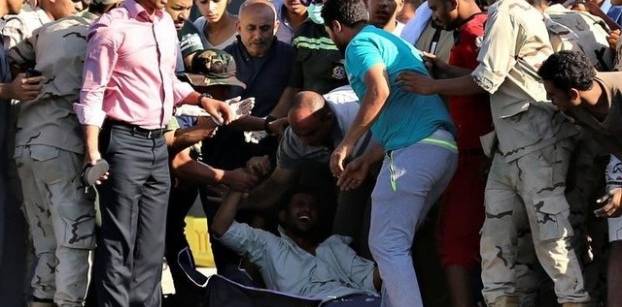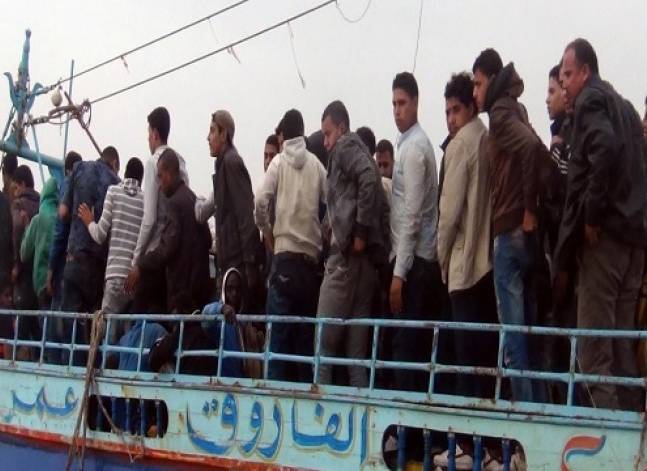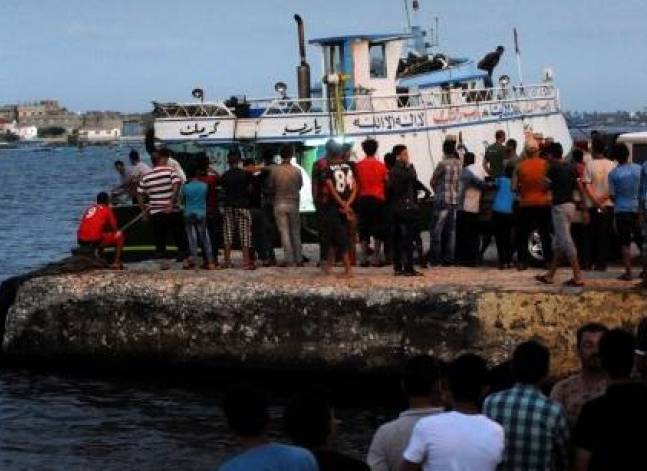Latest NEWS
- Aswat Masriya, the last word
- Roundup of Egypt's press headlines on March 15, 2017
- Roundup of Egypt's press headlines on March 14, 2017
- Former Egyptian President Hosni Mubarak to be released: lawyer
- Roundup of Egypt's press headlines on March 13, 2017
- Egypt's capital set to grow by half a million in 2017
- Egypt's wheat reserves to double with start of harvest -supply min
- Roundup of Egypt's press headlines on March 12, 2017
Egypt's Sisi promises justice after migrant ship capsize
A man reacts as rescue workers carry the body of a victim on a stretcher after a boat carrying migrants capsized off Egypt's coast, in Al-Beheira, Egypt, September 22, 2016. REUTERS/Mohamed Abd El Ghany
CAIRO (Reuters) - Egyptian President Abdel Fattah al-Sisi has ordered authorities on Saturday to punish those responsible for the capsizing of a ship which resulted in the deaths of more than 160 migrants, as families demanded the bodies of their loved ones.
Rescue workers and fishermen rescued 169 people after the boat sank off Egypt's Mediterranean coast early on Wednesday with up to 600 on board, suggesting many more may have perished than the death toll of 162 given by security officials.
Survivors, their relatives and families of the dead have been complaining of what they say is inaction by Egyptian authorities such as the coastguard.
On Saturday morning, tens of families stormed the gate of a coastguard checkpoint chanting: "We want our children, we want our children."
The coastguard service says it foiled an illegal migration attempt and saved lives. Four members of the crew have been arrested.
Following a meeting with the prime minister, minister of interior, and the head of the general intelligence service, Sisi ordered authorities to prosecute those who caused the incident, a presidential statement said.
Officials say the boat was carrying Egyptian, Sudanese, Eritrean and Somali migrants, and that they believed it was heading for Italy.
Security sources have said there was almost 600 migrants aboard the boat. However, a survivor whose comments appeared in a video online said the migrants had been told that about 200 people would be on board, but that the smugglers had then added another 50, causing the boat to founder.
More and more people have been trying to cross to Italy from the African coast over the summer months, particularly from Libya, where people-traffickers operate with relative impunity.
The International Organization for Migration says that more than 3,200 migrants have died while attempting to cross the Mediterranean this year, while nearly 300,000 have reached European shores.
(Reporting by Amina Ismail and Mohamed Abdella; Writing by Amina Ismail; Editing by Alison Williams)













